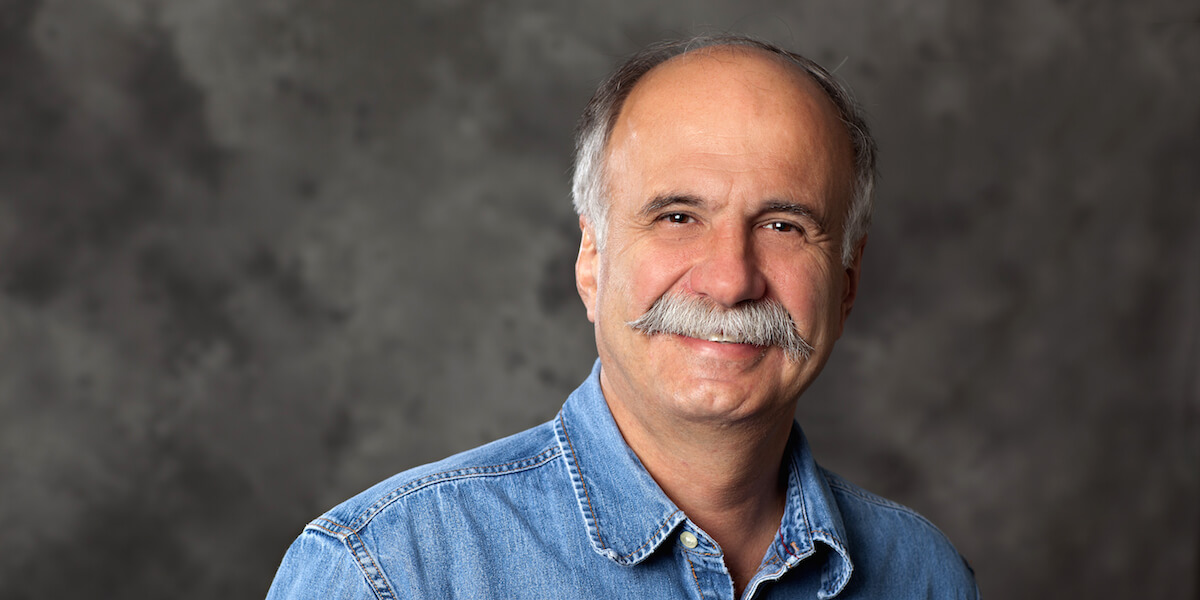
Professor Mike Gruntman. Photo courtesy of USC Viterbi
Mike Gruntman, professor and chair of the Department of Astronautical Engineering, was elected as a full member of the International Academy of Astronautics (IAA) for his contributions to the field of astronautics and the exploration of space. The induction ceremony was held during the IAA Academy Day on September 25 in Guadalajara, Mexico.
Gruntman has worked in a variety of research areas, including space instrumentation and sensors, spacecraft and mission design, orbital debris and interstellar flight. In the USC School of Engineering, he was the founding chairman of the Astronautics and Space Technology Division, now named the Department of Astronautical Engineering.
“Professor Mike Gruntman’s leadership in establishing and promoting astronautical engineering as a discipline is widely recognized, all the more so here in the USC Viterbi School where he helped found the Department of Astronautical Engineering,” said James Moore, Vice Dean for Academic Programs. “This fresh international recognition of his status as a space scientist helps position the department, the USC Viterbi School and the university as sources of thought leadership in the field.”
The IAA is an independent organization of distinguished individuals created in 1960 during the International Astronautical Congress. It is the only international academy of elected members in the area of astronautics and space, with current members including the leaders of all the space agencies, managers of space industries and leading space engineers and scientists.
Within the IAA, committees are formed to address current issues in space science and technology and make expert recommendations on the development of the exploration of space for organizations like national space agencies and the United Nations. “The academy did a lot of work on starting to consider the problem of space debris, for example, which is a growing issue and concern,” Gruntman said. “These reports are very important because they help space enterprise worldwide make decisions from the scientific point of view.”
Gruntman’s own research has achieved international recognition. In 2009, his work with NASA’s Interstellar Boundary Explorer (IBEX) mission was featured on the cover of Science. As co-investigator of the program, he played a key role in creating the first ever deep space sky map of the interstellar boundary of the solar system. This region is what separates the nearest reaches of our galaxy from the heliosphere, our solar system’s shield from dangerous cosmic radiation.
He has been working on this imaging technique since he was in his 20’s. “I was one of the pioneers of the entire field,” Gruntman said. “When I started in 1979, I was among the very few in the world, perhaps three or four people scattered across the globe, who started to advance this concept. No one believed that it could be done then.” In the next decade or so, as the instrumentation concepts and techniques needed to make these measurements were developed, many others joined. One of the components necessary for this new generation of space instruments, the diffraction filters, were developed in Gruntman’s laboratory at the USC Viterbi School of Engineering.
Gruntman also takes pleasure in writing books on space history. In 2006, his book, Blazing the Trail: The Early History of Spacecraft and Rocketry, won the Luigi Napolitano Award from IAA and, along with his most recent book, Intercept 1961: The Birth of Soviet Missile Defense, was published by the American Institute of Aeronautics and Astronautics, the world’s largest professional organization of aerospace scientists and engineers.
Published on September 29th, 2016
Last updated on March 10th, 2017













